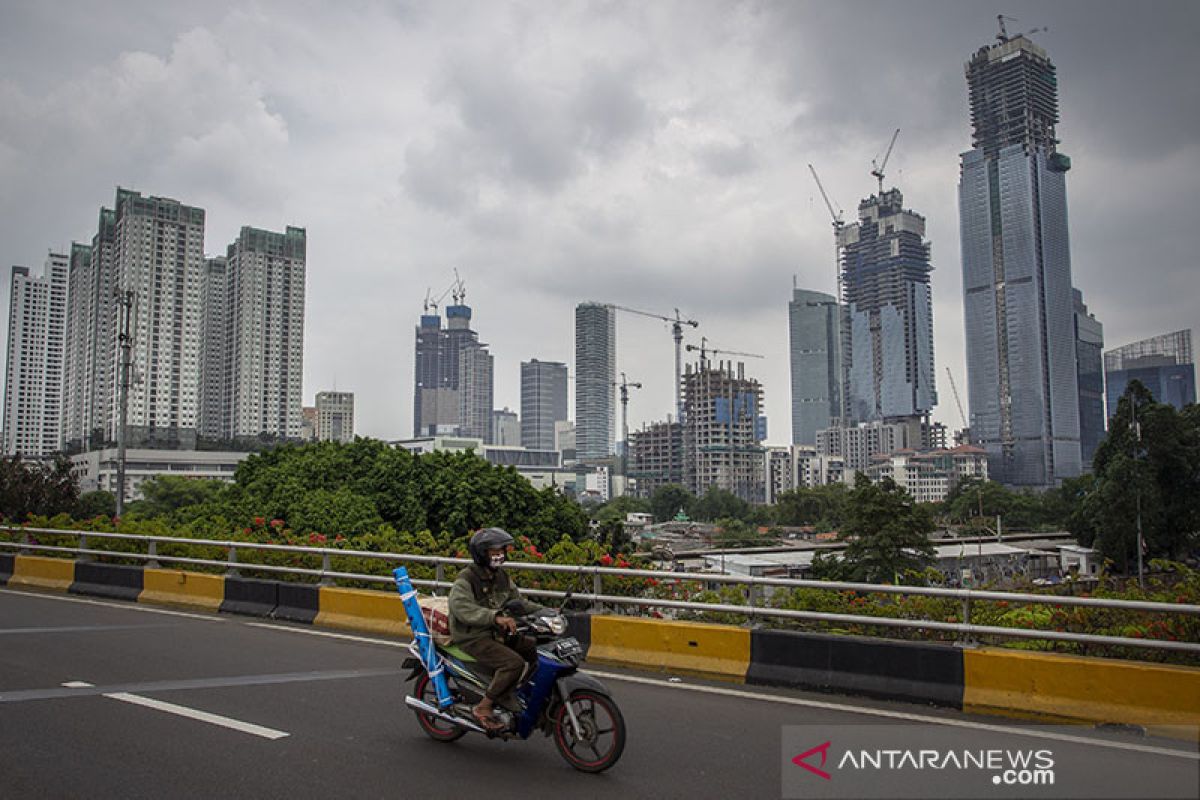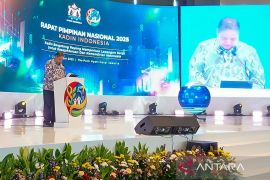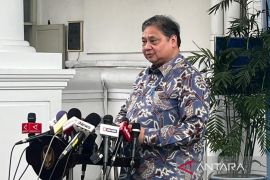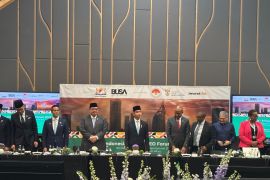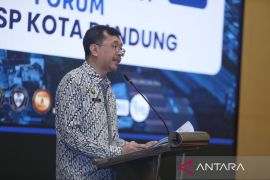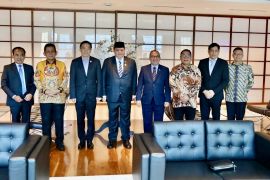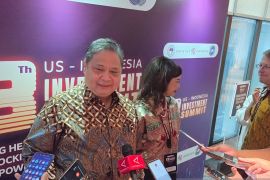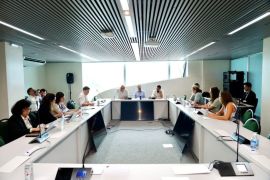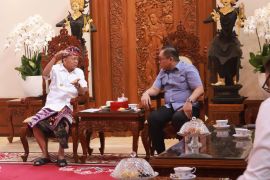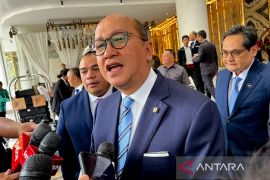The new ministry, announced by President Widodo on April 28, 2021, has been created to improve the ease of doing business in Indonesia as it struggles to recover from the COVID-19 pandemic. BKPM chief Bahlil Lahadalia has been appointed as the Investment Minister.
Indonesia has been working to realize economic growth of around five percent this year through direct investment, among other things.
The newly formed Investment Ministry is expected to attract investment into the country and create jobs, which are key to driving economic growth in 2021, according to Widodo.
"The key to growth, our economic growth, is investment. Because it is impossible for us to drastically increase our state budget. This means that the key is in investment and creating as many job opportunities as possible,” the President said recently.
He then asked that trade policies be formulated to invite investment inflows. Such policies must also help recover economic sectors that contracted last year due to the impact of the COVID-19 pandemic, he added.
Investment Minister Bahlil Lahadalia has formulated a strategy to increase the investment target up to Rp900 trillion for 2021 and Rp5 thousand trillion in 2024.
The new minister has a five-point plan to increase added value with downstream orientation to drive Indonesia’s economic transformation.
"The first one is investment in the health sector. We know that almost all of our medical devices and medicinal raw materials are imported," he said.
The other sectors that will become investment priorities are the automotive sector, followed by the mining, infrastructure, and new and renewable energy sectors, he added.
The minister assured the government is continuing efforts to expedite licensing to offer better services to domestic and foreign investors.
"BKPM's commitment is that we will not slow down licensing since it is akin to holding back jobs and potential state revenue, as 76 percent of the country's revenue comes from state taxes," he explained.
Furthermore, slowing down issuing of business licenses is also the same as holding back the rate of national economic growth and holding back the growth of Ease of Doing Business (EoDB), he remarked.
President Widodo is seeking to boost Indonesia’s EoDB ranking to 40th in 2024 from 73rd currently.
"This is tough work for us. Hence, let us build together the optimism that is essential in this era of uncertainty. The BKPM is always ready to run and serve the community in order to encourage investment," Lahadalia remarked.
Yusuf Rendy, an economist at the Indonesian Center for Reform on Economics (CORE), lauded the establishment of the new ministry, saying he believes the House of Representatives’ approval for the ministry will lend positive sentiment to investors.
"This adds to the government's efforts to improve the investment climate by upgrading (BKPM) from agency to ministry. It will surely be perceived as a positive sentiment for investors," he said.
The sentiment, however, will also depend on the extent to which the Ministry of Investment conducts key tasks and functions, he pointed out.
"The Ministry of Investment can encourage investment, especially in the manufacturing sector. This is an effort to encourage higher economic growth," he stated.
Data from the Investment Coordinating Board (BKPM) shows that industrial investment clocked a double-digit growth of Rp272.9 trillion in January-December, 2020 and accounted for 33 percent of the total national investment of Rp826.3 trillion.
This year, the government is targeting investment realization in the manufacturing industry sector to increase by Rp323.56 trillion. This optimism is supported by the implementation of the Job Creation Law, post-vaccination global economic recovery, and the establishment of the Ministry of Investment
In the first quarter of 2021, investment realization reached Rp219.7 trillion, a 4.3-percent rise from Rp210.7 trillion clocked during the corresponding period of last year. It also reflected an increase of 2.3 percent compared to Rp214.7 trillion posted during the previous quarter.
"Our investment realization amounted to Rp219.7 trillion," Lahadalia revealed in April this year.
The investment value constitutes 24.4 percent of the investment realization target of Rp900 trillion set by President Widodo.
A total of 311,793 people got employment during that period, an increase from 303,085 people during the corresponding period of the previous year.
"The initial investment target of Bappenas (National Development Planning Agency) was Rp856 trillion. However, the President ordered us to increase the target to Rp900 trillion. This is not an easy job during the pandemic era, but as an assistant to the President, we must always find a way," Lahadalia stated.
The investment realization in the first quarter of 2021 comprised domestic investment (PMDN) of Rp108 trillion and foreign direct investment (FDI) of Rp111.7 trillion.
In comparison with the January-March, 2020 period, FDI grew considerably by 14 percent from Rp98 trillion. Meanwhile, PMDN declined by 4.2 percent from R112.7 trillion.
"Our FDI was 50.8 percent, while PMDN touched 49.2 percent, which is slightly different. This shows that the world's confidence in Indonesia and our FDI activities has started to normalize. We can adapt to the developments in the COVID-19 pandemic," Lahadalia stated.
Based on project locations, investment realization in the first quarter of 2021 was spread across West Java, Jakarta, East Java, Banten, and Central Java.
The investment projects were mainly in the fields of property, industrial estates, and offices; basic metal industry, metal goods, and non-machines and equipment; transportation, warehouse, and telecommunications; food industry; as well as electricity, water, and gas.
Meanwhile, the top five investing countries were Singapore, China, South Korea, Hong Kong, and Switzerland.
Between 2015 and March, 2021, FDI in the agriculture sector was dominated by investments in oil palm plantations. FDI realization in agriculture during the period reached US$9.5 billion, accounting for around 5.2 percent of the country's total FDI (in Indonesian value). Meanwhile, domestic investment (PMDN) reached Rp173.9 trillion, accounting for 9.1 percent of the total PMDN in Indonesia.
Foreign investment in food crops, plantations, and livestock came from Singapore (53.7 percent) and Malaysia (15.8 percent) and mostly flowed into Kalimantan and Sumatra Islands, Jumina Sinaga, head of the sub-directorate for agribusiness at the ministry, disclosed during a webinar on ‘How foreign investment can advance Indonesian agriculture’.
During the webinar, associate researcher at the Center for Indonesian Policy Studies (CIPS), Donny Pasaribu, highlighted the importance of foreign investment in agriculture for increasing productivity to ensure food price affordability and better food quality.
Foreign investment is expected to bring advanced agricultural technology to Indonesia, help promote Indonesian agricultural products in international markets, and improve national agricultural productivity.
Related news: Indonesia, Uzbekistan explore investment in fertilizer industry
Related news: Govt investment realization reaches Rp19.56 trillion as of April
Editor: Rahmad Nasution
Copyright © ANTARA 2021
